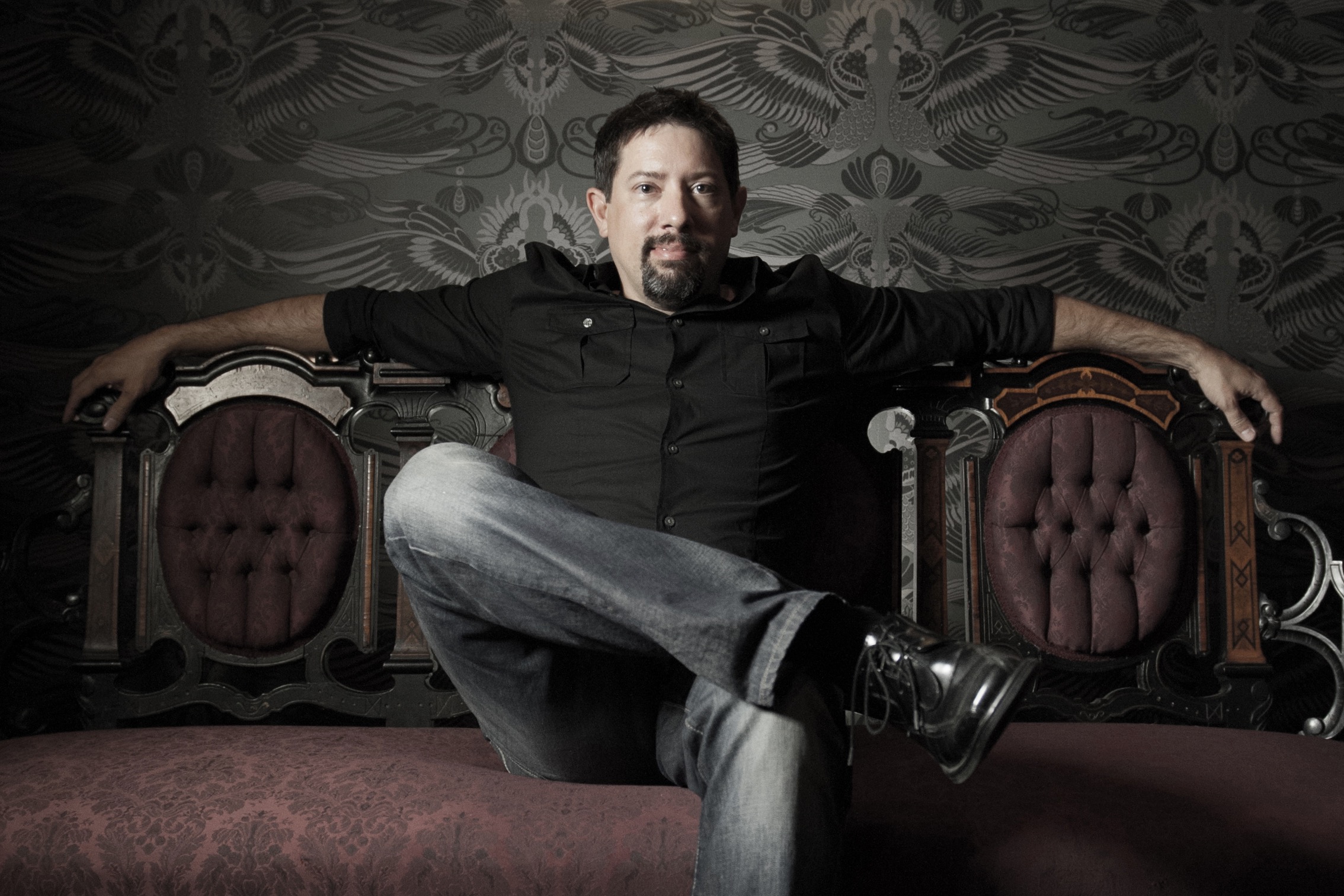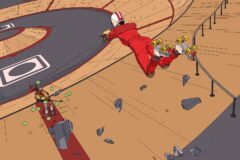With Halloween around the corner, there’s no shortage of monster-themed video games to dive into for the spookiest time of the year. But the games where you get to actually be the monster are far harder to come by.
Sure, the asymmetric survival horror genre has become popular for multiplayer titles — allowing one gamer to play as an array of iconic villains while the others try to survive and escape — but there’s really only one title where you can jump into the shoes of an overpowered rampaging monster and clear out security guards, scientists, and anyone else who stands in your way: Carrion.
Of course, a reverse horror game in which the amorphous tentacled murderer is actually the protagonist is going to require a slightly different development and creation approach than most other titles. That’s why the folks at Phobia Game Studio and Devolver Digital brought in legendary composer Cris Velasco (God of War, Borderlands, Mass Effect, etc.) to create a score that worked from the creature’s point of view.
SPIN spoke with Velasco to chat about the unique process, horror music in general, and his impressive tenure in the industry.
SPIN: Having scored plenty of monster-based games in the past, how did actually playing as the monster in Carrion affect the way you looked at composing the tracks for it?
Cris Velasco: I actually tried to write the music from the monster’s perspective. Not so much as “I’m the beast and I’m going to kill you,” but more like “I’m a malevolent entity that never stops hunting. This is the sound of my inner dialogue.” I think the score works from the monster’s or the humans’ point of view though. It can be quiet, suspenseful, beautiful, or horrific. It’s the dystopian sounds of symphonic carnage.
As someone who’s scored songs for some of the most famous games of the last few generations, what would you say is the most unknown or unappreciated aspect that goes into creating a memorable game soundtrack?
I think with any form of art, there’s a lot of magic going on under the hood. Like with painting, in music there are so many layers that get combined to make the sound you’re going for. Sometimes that’s just regular orchestration, but for Carrion, I added a ton of other things in with the traditional instruments to give the score its unique sound. One of these was the sound of actual slime. My friend has two kids that happened to be in a “slime phase” at home. They had these plastic containers full of slime you could play with. I borrowed the slime, put a little water on it, and then recorded its various squishing noises. These then got processed and turned into a Kontakt library, and these sounds pop up in many of the tracks. It’s something you might not notice unless you’re actively listening for it, but it adds a layer that you’d definitely miss if it wasn’t there.
Seeing as “horror” is often so atmospheric and impacted by the music, is creating the score for a game like Carrion, Resident Evil 7, or Bloodborne a different process for you than composing for other titles?
Horror music is unique in that you can really write anything for it. That’s why I love working in this genre so much. You can write the scariest, most atonal music, and it will be appreciated in the context of the game. Normally, no one would really want to listen to that, but with horror, you can also write something truly beautiful. Take children singing a pretty melody, or a love theme between two characters. Now put those over a horror film or game and you’ve got something that feels terrifying. For Carrion, I took a bit of inspiration from Alien, John Carpenter, and [Krzysztof] Penderecki as my starting points — just the idea of blending those three styles together. What came out is 99% influenced by the actual game though.
Having spent the last 16+ years in the industry, how have you seen gaming change both from a musical perspective?
When I first started composing for games, the reception I got wasn’t too flattering. “Oh, you write music for games? I’m sure your career will pick up down the road!” It was where my passion was though, and I never saw it as a “low art” — as my professor at UCLA called it. To me, it’s always been exciting and a real trailblazer of what entertainment was going to look like in the future. What started out as 8-bit chiptunes is now a genre of music that really can’t be distinguished from film music — or even concert music sometimes. In fact, there are numerous game music concerts that happen all over the world now, and I’ve been fortunate to have my own game music performed on nearly every continent. Game music has become its own celebrated art form now, and every year the quality of music seems to get better and better. I honestly think that games are where most musical innovations are happening now.
Looking back to the beginning of your career, what’s one thing you’ve learned over time that you wish you’d realized earlier?
I wish I’d learned to not stress out after a project is finished. The game industry ebbs and flows in regards to music. Sometimes I’m working on multiple projects at once. Sometimes you finish a score and there’s nothing lined up right after. I tend to stress out during these “nothing” moments. I always wish I would’ve taken advantage of the break and just learned to enjoy the time off.





